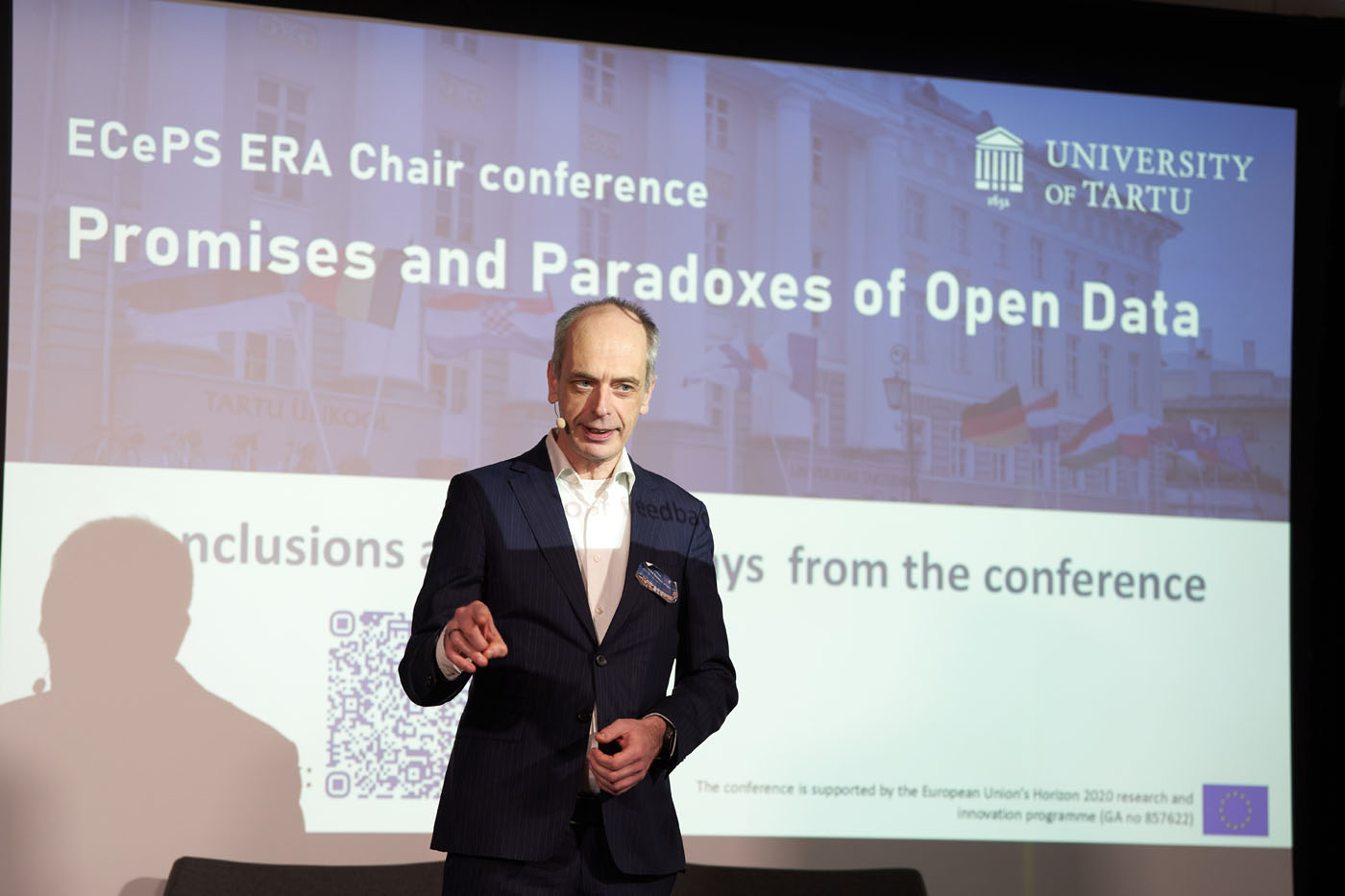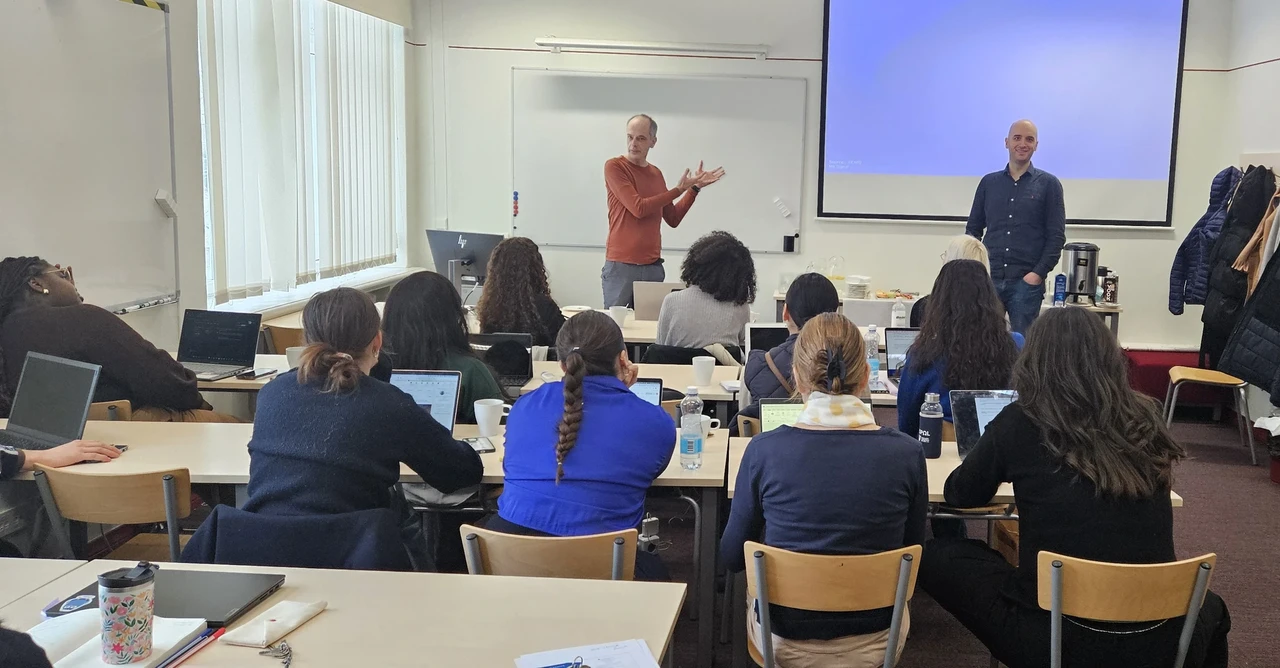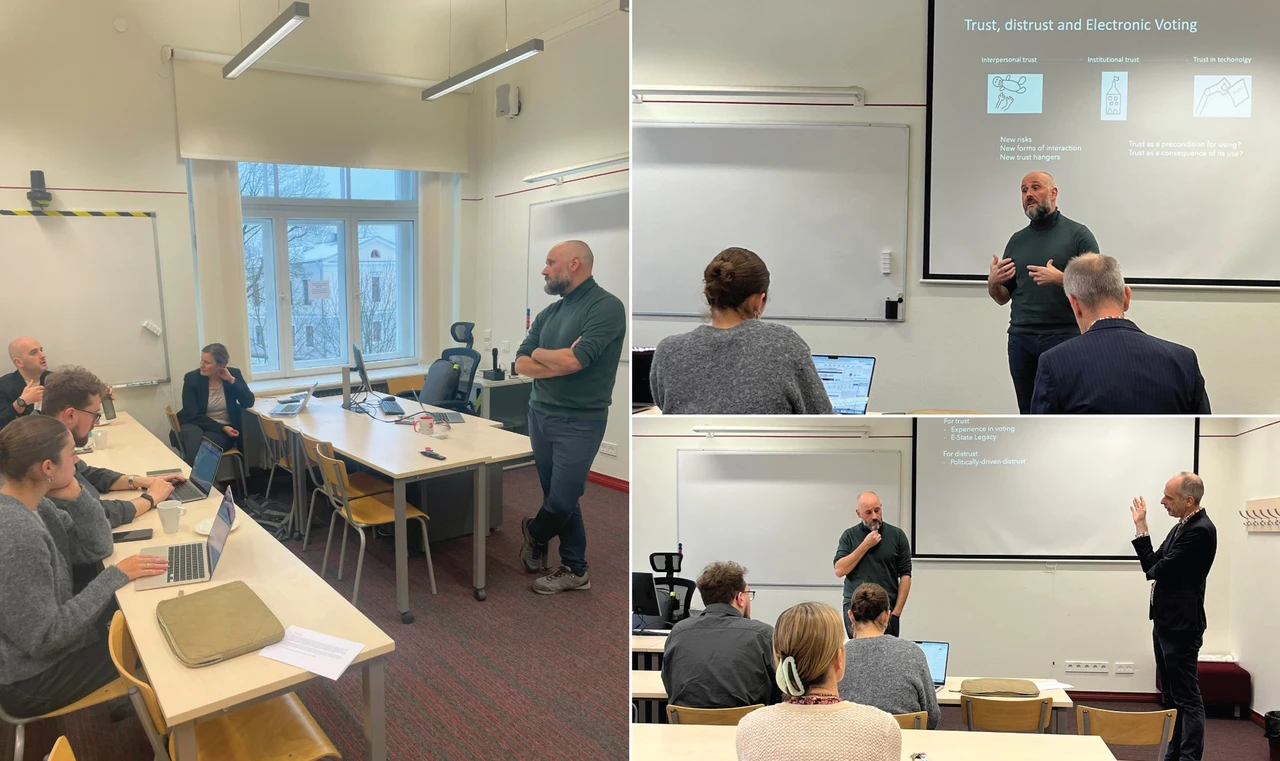During the morning session, ECePS Junior Research Fellows Art Alishani, Logan Carmichael, Stefan Dedovic, Biao He and Bogdan Romanov presented the results of their doctoral studies, which contributed to the implementation of the research components of the ambitious agenda launched by the ECePS Research Project 2021
Art Alishani's research shows how digital tools are changing the way governments and citizens connect. In his presentation, Art explained how chatbots like Estonia's Bürokratt invite us to rethink traditional ideas about discretion in service delivery, emotion in interactions, and who's responsible for what in public service delivery. Art surveyed Estonian citizens and found that people are more likely to use chatbots to get information and services if they believe the bots work well, trust the technology, and feel their privacy is protected. Surprisingly, it doesn't really matter whether the chatbot is transparent or how much information is shared - what matters most is effectiveness and trust. This challenges some ethical concerns about AI in public services, and offers a new perspective on how governments can use AI to improve interactions with citizens.
Logan Carmichael's presentation focused on her study of how smart cybersecurity governance can keep digital services and internet voting safe, helping to maintain people's trust in the digital world. She looked at how Estonia handled cybersecurity incidents between 2007 and 2023, and got the inside view from top decision-makers. By speaking to experts with first-hand experience, Logan discovered that lessons learned from past crises are often reused to tackle new ones. She shows how every crisis becomes a learning moment, accelerating the process of finding better ways to deal with cybersecurity threats. Her research contributes to the topics at the intersection of pillars two and three of the ECePS research agenda. Logan's study shows how looking back can help us stay safer online today, and contributes to ongoing discussions in the academic literature at the intersection of cybersecurity, crisis management and governance.
Stefan Dedovic's expertise was demonstrated in his research project on the motivation, manifestation and impact of cross-border e-services in the European Union. Stefan published a structured literature review in the International Journal of E-Governance Research and explained the complexities of interoperable services using his case study of the European Car and Driving Licence Information System (EUCARIS). Stefan also talked about his current research on how to measure the real-time impact of cross-border services, with a particular focus on reducing the administrative burden on employers when sending employees to perform services in another country. Stefan's research contributes to a better understanding of the complexities of cross-border e-governance and the implementation of European regulations such as the Single Digital Gateway Regulation (ECePS pillars two and four).
Biao He's presentation focused on the important question of how to make digital services accessible to the widest possible audience, with a particular focus on the elderly and people with disabilities. This challenge of inclusiveness is particularly relevant for China, a country with a rapidly ageing population and a large number of people who face challenges in life. Conducting fieldwork in China, Biao closely examined how local governments have implemented national legislation on digital inclusion and identified the variables and conditions conducive to successful transformation of public service delivery into accessible and inclusive digital public service delivery, with a particular focus on the role of local civil society and advocacy in this process. Biao's research contributes to our understanding of the questions formulated in the first pillar of the research agenda (organisational change).
The morning session concluded with Bogdan Romanov explaining how trust in technology and trust in institutions are related to Internet voting in Estonia and Russia. In his presentation, Bogdan explained his quest to study trust in Internet voting across regimes and systems, and how he conducted different studies (using different methods). Bogdan applied regression analysis to survey data to conclude that trust and confidence play different roles for higher- and lower-knowledge individuals, and that voters in authoritarian regimes respond differently to digital innovations than voters in democratic political systems. In another study, Bogdan used Q-sorting methods to identify different political narratives about Internet voting. Overall, Bogdan clearly explained how technologies and political behaviour are linked through trust, and what policy recommendations can be developed in relation to Internet voting.
The afternoon session featured two panel sessions with experts from academia, government and business. The topics were the use of open data for research (panel 1) and business development and service innovation (panel 2). In the first panel, leading experts Prof Dr Evelyn Uuemaa, Dr Külli Taro, Dr Ott Velsberg and Dr Mihkel Solvak shared their experiences and insights on how to make the most of open data for research. The lively discussion revealed that lack of metadata, inconsistencies in standards and data definitions over time, and difficulties in accessing data limit the potential use of open data in research. Ongoing communication between data owners and researchers is needed to improve feedback loops, which could help solve current problems related to data access and quality. The discussion was a powerful reminder that the potential of open data is huge, but unlocking it requires collaboration, interaction and a shared vision of open data for the future.
In the second panel, Veiko Berensen of Statistics Estonia, Dan Bogdanov of Cybernetica AS, Kristjan Lemmsalu of the Estonian Information System Authority and Andres Raieste of Nortal discussed what it takes to turn open data into real business value. The discussions highlighted that trust in institutions is crucial for companies to build successful open data business models. However, trust varies significantly across countries and settings, making it difficult to create business value from open data.
The event concluded with a visit to Ryoji Ikeda's digital artworks at the Estonian National Museum.













Comments